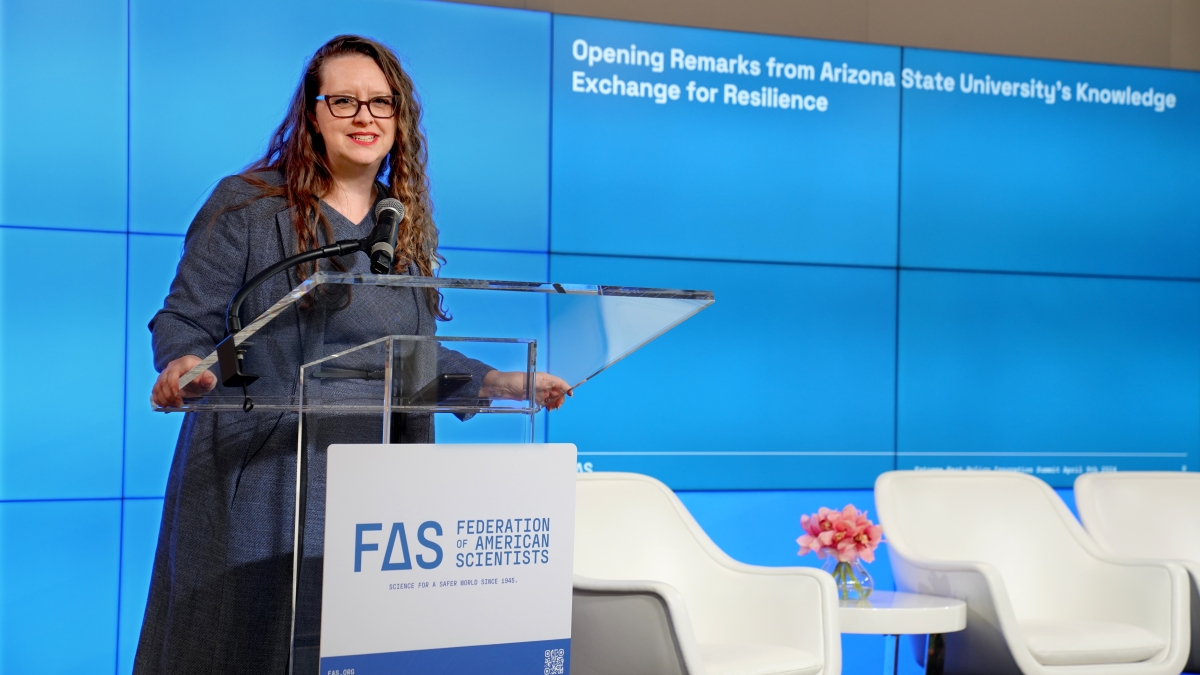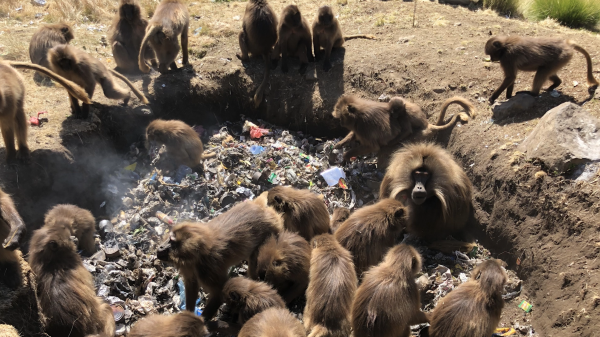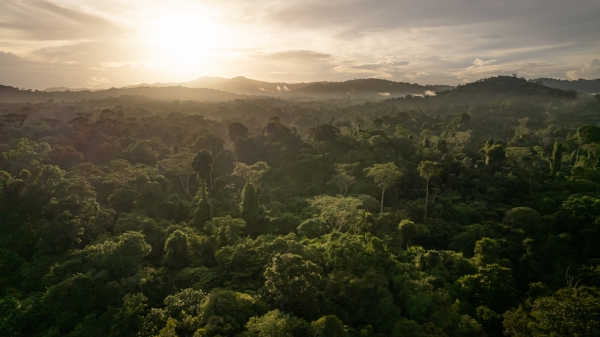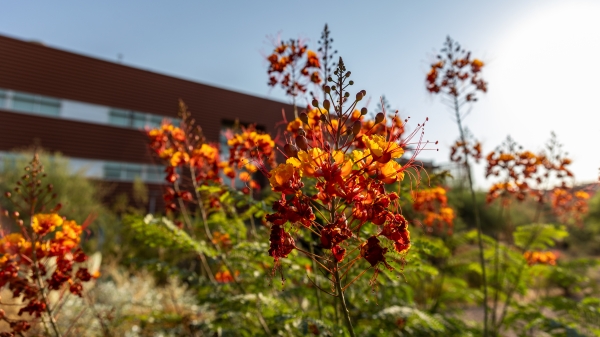Arizona adapting to heat crisis with initiatives featured in ASU report
Knowledge Exchange for Resilience report released during extreme heat summit in DC

Knowledge Exchange for Resilience Executive Director Patricia Solís welcomes attendees to the inaugural Extreme Heat Policy Innovation Summit in Washington, D.C.
Arizona State University's Knowledge Exchange for Resilience, also known as KER, released its Recommendations Report on Extreme Heat Preparedness earlier this April during a summit in the nation's capital aimed at sharing heat research and strategies for better-informed policymaking.
The Extreme Heat Policy Innovation Summit, co-hosted by the Federation of American Scientists and KER, drew attention to urgent climate challenges and innovative policy solutions, featuring a diverse panel of experts, policymakers and community leaders.
“For so long we thought about heat as the silent killer. … But it’s not invisible anymore,” said Jainey Bavishi, NOAA deputy administrator. “We're seeing these events. They're becoming more commonplace. And I think government is now responding appropriately to protect people, to protect communities, to protect infrastructure and our economy.”
The summit facilitated discussions on effective strategy sharing to mitigate heat impacts. Sessions emphasized community engagement, policy innovation and technology to address heat-related risks.
“It is critical that we are building a community of practice around extreme heat — we need to share policy ideas, infrastructure solutions, program lessons learned and the latest research,” said Braden Kay, California extreme heat and community resilience program manager.
A significant portion of the day was devoted to highlighting efforts within Arizona, which had its hottest summer on record in 2023, catching national media attention.
“We heard from legislators, community leaders and others that there was a notable increase in need for more resources and an emergency response,” said Maren Mahoney, director of the Arizona Governor’s Office of Resiliency.
Accordingly, in August last year Arizona Gov. Katie Hobbs issued Executive Order 2023-16, directing state agencies to address extreme heat and establishing the Interagency Resilience Forum.
“We quickly leapt to action as our deadline for that extreme heat preparedness plan was March 1 in collaboration with the Knowledge Exchange for Resilience,” Mahoney said.
The KER report, which informed the official state plan, lays out a comprehensive strategy to combat extreme heat, particularly in Arizona, offering 43 specific recommendations based on extensive research.
One key recommendation led to the appointment of Dr. Eugene Livar as the first chief heat officer for the state of Arizona, the first of its kind in the nation.
Livar elaborated on the role, located within the Arizona Department of Health, and how it will focus on coordinating responses across several diverse agencies, saying, “(We) are really excited to see some of those connections expanding and seeing what we can do to support grassroots and local efforts as we move forward.”
Patricia Solís, executive director of KER, emphasized the report’s broader implications, saying, "This report is not just a collection of recommendations, it is a call to action for all levels of government and sectors of society to unite in building resilient communities that can withstand the severe impacts of extreme heat.”
More Environment and sustainability

Students pitch in to help solve plastic problem in Ethiopian national park
This weekend, nine students from Arizona State University’s Ira A. Fulton Schools of Engineering will take an 18-hour flight to northern Ethiopia. Their mission? To tackle a damaging plastic problem…

Study: Conservation actions highly effective at halting, reversing biodiversity loss
A new study, led and contributed to by Arizona State University faculty, provides the strongest evidence to date that not only is nature conservation successful, but that scaling up conservation…

Barrett Honors College to host nature walks for science, relaxation
Barrett, The Honors College at Arizona State University is gearing up to participate in the City Nature Challenge (CNC) for the fourth consecutive year. This annual event, taking place April 26–29,…